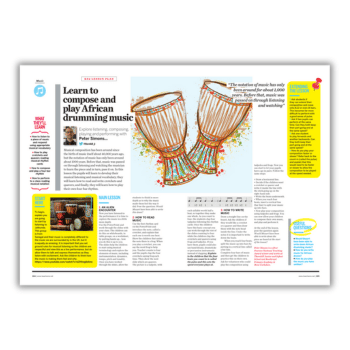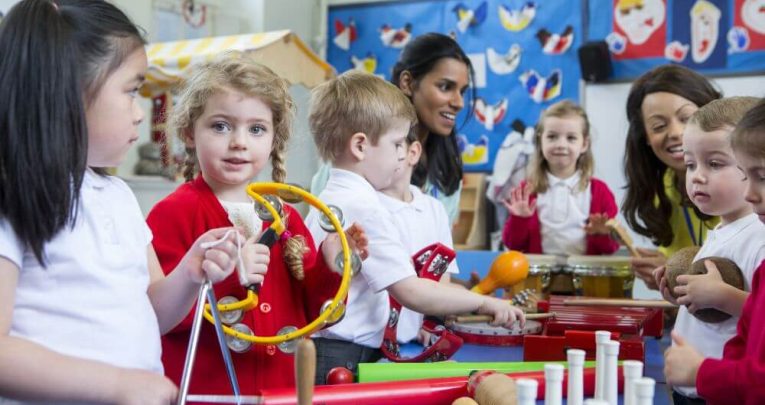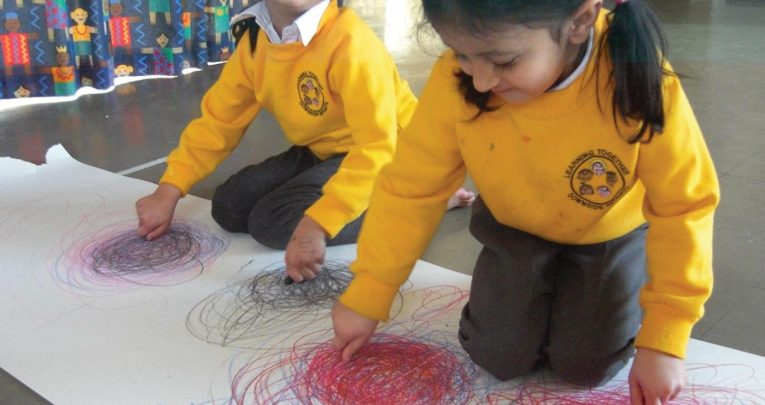Music National Curriculum – three key takeaways from Ofsted’s review

Music may be undervalued, but its lessons can be beneficial across every subject, says Ben Connor…

- by Ben Connor
- Deputy headteacher and music specialist Visit website

While music contributes billions to the UK’s economy, it is becoming increasingly undervalued in schools.
Though some schools still provide a high level of music education, the numbers of trainee teachers specialising in music has dropped over the past decade (Ofsted’s Research Review of music, July 2021).
Primary trainee teachers also receive little specific music training during their studies.
However, the review also demonstrates the importance of music and its place within an effective curriculum.
It argues that while lessons improve a child’s specific knowledge of music, they also have a positive impact on phonemic awareness, literacy, memory and academic achievement in other curriculum areas.
One notable area on which the review focuses is the types of learning in music.
Over the past few years, approaches have shifted from focusing purely on what pupils should be taught, to look more keenly at how pupils learn best.
The review outlines tacit, procedural and declarative learning that takes place within music lessons. Understanding these can support excellent teaching across the board.
Tacit knowledge
Tacit, in this context, refers to implicit knowledge gained through everyday experiences rather than specific teaching.
Often, tacit knowledge is difficult to verbalise. This is because pupils gain their understanding through home life or cultural experiences.
Children can gain this knowledge through repetitive acts. For example: informally listening to music, engaging with cultural or religious events, or through dance, musical theatre or other media.
Tacit knowledge can also support pupils with developing subject-specific knowledge. However, each pupil will have a different starting point and so will approach new learning differently.
An example of tacit knowledge in action is that pupils will be able to ascribe emotion to certain types of music.
This includes things like film scores. They have passive experience of watching films where the score creates a particular feeling.
This will support pupils in developing the ability to analyse other pieces of music. You could also use it to support understanding major and minor keys.
One way to approach this could be to play altered versions of famous film score extracts with the key altered. E.g. the Imperial War March from Star Wars – composed in a minor key.
Can the pupils explain why the ‘feeling’ of the music has changed? Is it now unsuitable for that part of the film?
Procedural knowledge
Procedural knowledge refers to gaining knowledge by performing a task repeatedly.
An increase in procedural knowledge allows you to carry out a task to a higher standard or more efficiently.
Pupils can gain this procedural knowledge by repeating a simple task often. This will allow them to be able to perform more difficult tasks which follow a similar format or use the same core skills.
Children can develop the physical skills they require to carry out tasks by developing their procedural knowledge.
This works by consolidating specific motor tasks as muscle memory.
One way to develop procedural knowledge is the use rhythm call and response, which is a key element of Samba Band music.
The lead (not necessarily the teacher!) plays rhythms for the rest of the group to copy.
Copying the rhythm requires the use of accurate listening skills, as well as procedural knowledge of how to replicate the rhythm.
The lead can control the difficulty of the rhythms, slowing increasing the complexity in order to scaffold pupils as they develop these skills.
Declarative knowledge
Declarative knowledge means factual information that the memory can store.
Provide pupils with specific information about eras, styles, composers or performers through an increase in factual knowledge. You can then apply these within wider learning opportunities.
Often music is not treated in the same way as subjects with a more factual focus, such as science or history. You can, however, employ the same techniques.
One way to develop declarative knowledge is to create knowledge organisers for a particular unit of learning.
You could focus on items such as a composer who had significant impact on the development of a particular genre or era of music.
As with the development of any factual knowledge, a key approach is to use recall activities regularly. This will ensure that pupils remember these facts, and can apply them effectively.
Ben Connor is a primary deputy headteacher at a school in Bury, Greater Manchester. He has been teaching for 13 years in various schools and currently leads on curriculum and teaching & learning.










